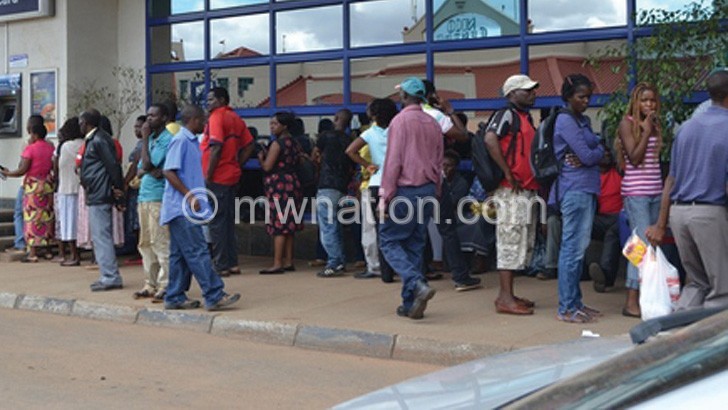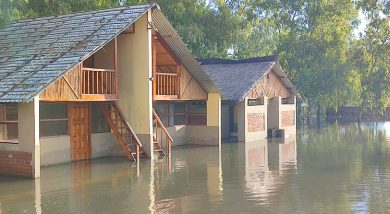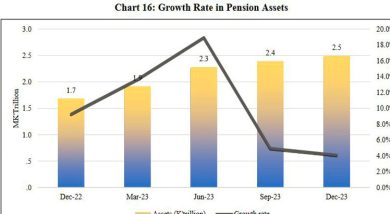Malawi savings rate at 2.9%—Firm
Investment portfolio firm, Alliance Capital Limited has said though individual savings are not considerable enough for investment, it is important that the economy gets reorganised to woo resources from all avenues to improve the country’s rate of savings.
The country’s saving rate currently stands at 2.9 percent.

In its published weekly market review on Wednesday, the firm said despite the financial reforms—such as interest rate liberalisation—savings rates have continued to dwindle inconsistently at 5 percent of gross domestic product (GDP) in 1990, -3 percent in 1993, 10 percent in 1994, – 4 percent in 1996 and -2 percent of GDP in 1999.
“This means that the changes in the savings rates imply that there are factors other than the interest rates that explain their variability like poverty and illiteracy. Savings in Malawi is found to be influenced by factors like income, liabilities, dependence ratio, location and other demographic factors such as age, marital status, among others. The crucial determinant of savings is the level of income that economic agents have.
The firm said when household savings are deposited in the commercial banks they contribute to private savings and become available in the national accounts.

“However, for rural dwelling individuals, the question one may ask is the kind of savings these households are involved in. It is important to target rural areas and entice them to saving with the formal financial intermediaries in order to mobilise resources locally for investment growth,” the report reads in part.
Conventional wisdom tells us that the higher the savings rate the country registers should naturally result in the rapid growth of GDP. However, this has proved not to be the case in Malawi.
At 2.9 percent, Malawi’s national savings rate is below the recommended average of 12 percent, which negatively affects economic development, according to Ben Kaluwa, professor of economics at University of Malawi’s Chancellor College.
“This is related to poverty prevalence which is high in Malawi. Poor people cannot save because they need to spend quite a bit of their income on necessities. A rule of thumb established long time ago is that nations need to save about 12 percent of their income to get out of poverty.
“If your income is low, there is no way anybody can expect you to be able to save because you need to save on necessities. This means you can’t invest in long term infrastructure, which is very important for economic development, which is not possible with a low savings rate,” he explained.
Reserve Bank of Malawi (RBM) spokesperson Mbane Ngwira in an earlier interview said low rate of savings is in part because the economy has not been performing well.
“High inflation rates, low GDP growth and growing government debt affect monetary growth. These factors also affect domestic savings. That is the reason why the authorities are working hard to stabilise the macroeconomic framework, reduce inflation and stimulate economic growth,” he said.





